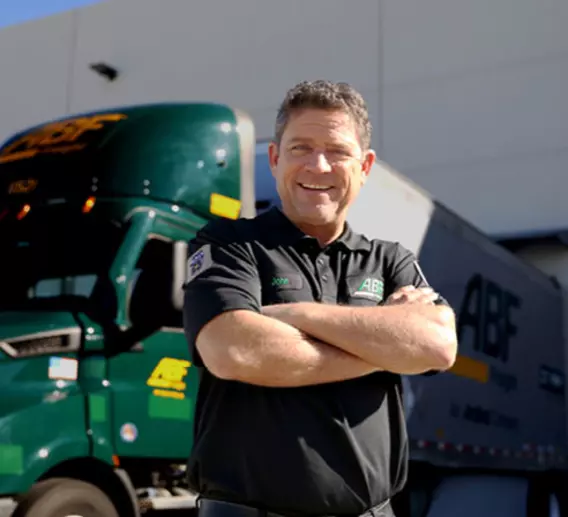FAQs for navigating an LTL driving career
When thinking about truck driving, the first image that comes to mind for many people is a solitary person hauling loads all around the country. But that’s not the only career path for professional drivers.
If you want to explore options beyond long-haul routes, consider less-than-truckload (LTL). Find out if it’s right for you by getting answers to these common questions.
What does an LTL driver do?
An LTL driver typically visits the same locations daily or weekly, making multiple deliveries on their route during a shift. LTL driving jobs are divided into two categories:
Pickup and delivery (P&D)
Local/city drivers in this role pick up freight from the service center and deliver it to the customer, or vice versa. P&D involves lots of city driving with multiple daily stops, so it helps to be comfortable navigating a truck in tight spaces.
The job can also include loading and unloading freight and helping with dock work, making it a critical, fast-paced job that’s great for drivers who enjoy using all their professional skills and interacting with customers. Plus, you usually get home daily.
Linehaul
Linehaul drivers move freight between service centers for longer stretches in a particular region. They can run day or night, depending on what the shipment requires.
Some linehaul drivers are home each night, while others may spend more time on the road. LTL trucks are primarily day cabs instead of sleepers (used by many over-the-road (OTR) drivers), so the carrier typically covers the expense if you need to stay overnight on the road.
Which endorsements are required?
You never know what you may have to transport, so it’s a good idea to have the following CDL endorsements before pursuing an LTL job:
- Hazmat — for transporting hazardous materials
- Doubles/triples — for moving multiple trailers at once
- Tanker — for companies that haul liquid totes
How does an LTL work schedule differ from OTR?
With LTL, you’ll likely have a consistent and predictable schedule, which makes it easier to plan. You’ll also become familiar with the people you see and the routes you travel (which is comforting if you’re a creature of habit). And your weekly pay may also be more reliable.
Do you have to own your equipment to drive LTL?
No. LTL may be appealing to drivers who don’t aspire to be owner-operators. With LTL, you drive a company-provided truck, avoiding the start-up costs of truck ownership. Plus, LTL drivers don’t have to pay for repairs or ongoing maintenance.
How attainable is work-life balance?
Very attainable. As an LTL driver with a local or regional route, you get to be home regularly, sleep in your own bed more often, and spend more time with family and friends.
Do LTL drivers make good money?
Many drivers find that working for a respected carrier gives them more than just a regular paycheck. When you drive for ABF Freight, for example, you receive company-paid benefits with no premiums in addition to Teamster Union Scale pay. Learn about more advantages of driving for ABF.
Join ABF and unlock your potential
Build a satisfying career and develop lasting bonds as part of a trusted industry leader. ABF has been at the forefront of LTL service in North America for over a century, thanks to dedicated people driven to serve our customers and one another.
Join our team and discover the ABF difference!

